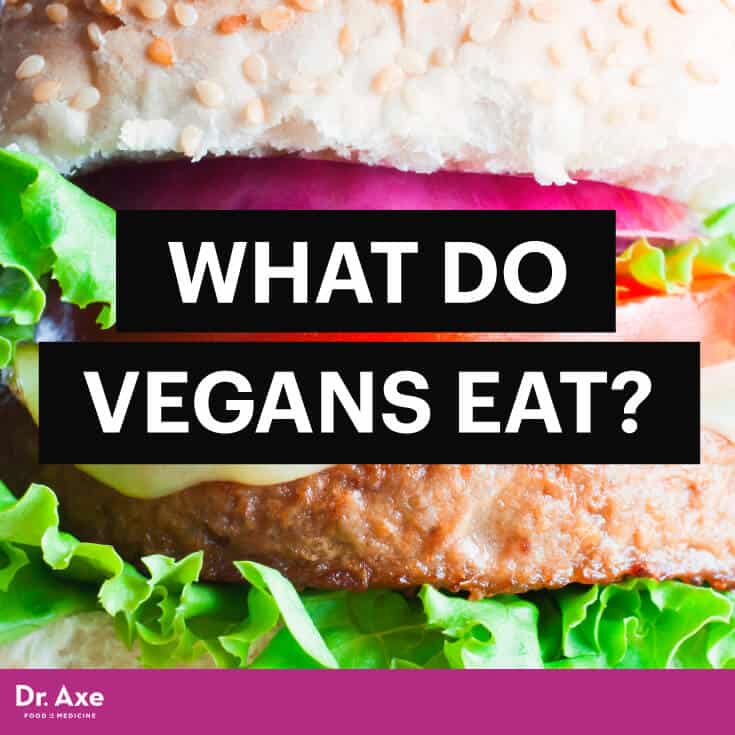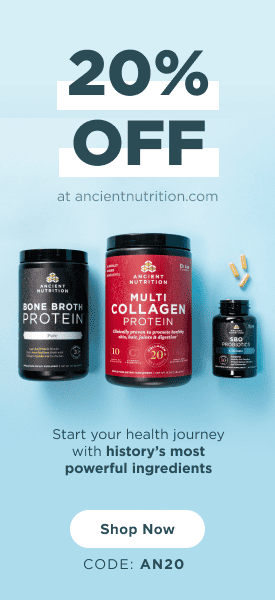This Dr. Axe content is medically reviewed or fact checked to ensure factually accurate information.
With strict editorial sourcing guidelines, we only link to academic research institutions, reputable media sites and, when research is available, medically peer-reviewed studies. Note that the numbers in parentheses (1, 2, etc.) are clickable links to these studies.
The information in our articles is NOT intended to replace a one-on-one relationship with a qualified health care professional and is not intended as medical advice.
This article is based on scientific evidence, written by experts and fact checked by our trained editorial staff. Note that the numbers in parentheses (1, 2, etc.) are clickable links to medically peer-reviewed studies.
Our team includes licensed nutritionists and dietitians, certified health education specialists, as well as certified strength and conditioning specialists, personal trainers and corrective exercise specialists. Our team aims to be not only thorough with its research, but also objective and unbiased.
The information in our articles is NOT intended to replace a one-on-one relationship with a qualified health care professional and is not intended as medical advice.
What Do Vegans Eat?
October 21, 2015

A diet high in fruits, vegetables and nuts without meats, dairy and all the added health repercussions these foods can include … yes, for some, a vegan diet sounds like a dream.
When people decide to become either a vegan or vegetarian, it’s sometimes because of a strong desire to eliminate most animal products in one’s diet (and the impact that livestock farms have on the planet) — but equally, most people willing to forgo so many foods also do so because they believe, in their core, that it’s a healthier option. But is it?
So before you start tossing out the steaks and cheese, it’s crucial to examine what do vegans eat exactly, how this diet affects a person’s lifestyle and if it’s actually healthy.
What Works in a Vegan Diet
A vegan diet eliminates all foods that come from an animal, including meats, eggs and dairy products like milk, butter, cheese and yogurt. Instead, vegans eat plant-based foods such as fruits, vegetables, nuts, beans and whole grains. Vegans eat many of these plant-based foods raw, which provides more nutrient value. In fact, a vegan diet often includes the presence of more enzymes, vitamins and minerals. Eating plenty of raw vegetables has a number of benefits:
1. Lowers Inflammation
A 2014 Nutrients study revealed that even a short-term vegan diet substantially lowered disease-causing inflammation levels among its participants. (1) The study authors are testing this theory long term.
2. Retains Valuable Enzymes with Vegetables
When we cook our vegetables, we unfortunately lose most of the vital enzyme content. When cooked over a certain temperature, the enzymes found in the vegetables become destabilized. Our bodies need enzymes to break down the food into smaller nutritional units that the body can handle.
3. Raw Vegetables Can Reverse Cancer
In a landmark 2004 study, “Nine of the 11 studies of raw and cooked vegetables showed statistically significant inverse relationships of … cancers with raw vegetables, but only four with cooked vegetables.” (2) Conversely, when one cooks meat at high temperatures, HCAs (chemical compounds) can be created that may be carcinogenic. The higher the cooking temperature, the more toxins are created.
4. Alkalizes Your Body
Your pH is crucial to health. Your body should have an average pH of 7.36, but plenty of unhealthy foods have much lower pHs and thus make our bodies more acidic, which helps diseases like osteoporosis and cancer thrive. Uncooked fruits and vegetables in an alkaline diet are said to be biogenic or “life-giving,” while cooking foods depletes alkalinizing minerals.
Consuming more green vegetable juices like wheat grass and spinach help restore the body’s proper pH — alkalizing the body so the cells can heal and regenerate at the highest level. It’s why the vegan diet plays a significant role in the healing diet I recommend to many of my patients.
Related: What Is the Pegan Diet? Benefits, Downsides & How to Follow It
What Can Go Wrong with a Vegan Diet
In theory, vegans replace the animal products with lots of whole foods like fruits, veggies, nuts, beans and whole grains. The reality, however, can often be quite different. What do vegans eat, in most cases?
Switching to a vegan diet doesn’t mean people suddenly become immune to all the food temptations out there. And they don’t have to; a surprising amount of potato chips, cookies and candy are vegan. In fact, this vegan snack food list from PETA includes hundreds of name brands that are vegan-safe.
But what’s more common than binge-eating chips or candy bars is buying faux versions of meats and cheeses. I don’t mean good-for-you fermented foods like tempeh or natto or homemade vegan cheeses. I’m talking about soy burgers, Tofurkey and the like, purchased at the grocery store. These foods are loaded with preservatives, sodium, gluten, soy and wheat; unless the product is explicitly non-GMO, you can be sure you’re getting a dose of chemicals with your food.
Additionally, vegans commonly eat soy. Is soy bad for you? Yes. It increases estrogen production; in women, this increases the risk of certain cancers and hormone imbalance-related disorders. (3) With the amount of soy that mock meat and cheese products contain, this is a real concern.
Processed foods are also a major source of weight gain. While vegan-friendly processed foods might sound more nutritious, don’t be fooled. They still contain the same artificial sweeteners, canola oil and soybean oil as other products, helping to pack on the pounds. Soybean oil possesses super high levels of omega-6, a fatty acid linked to inflammation.
Lastly, in order to arrive at filling meals, an over-reliance on grains — breads, pasta, rice, etc. — can develop. Whether or not most vegans can tolerate grains and gluten is one issue, but the other is that an overconsumption can cause insulin levels to rise and subsequent weight gain. In fact, if weight loss is what you’re after, a vegan low-carb diet that strips these types of carbohydrates from your menu will be more effective, but you don’t want to sink too low in carbohydrates.
The Potential Health Repercussions of a Vegan Diet
So, what do vegans eat? What if you steer clear of processed foods entirely? Is it possible to eat vegan and still be healthy?
The short answer: It’s difficult. While wholesome vegan diets are nutritious, they still lack in quite a few nutrients our bodies need to perform their best.
Vitamin B12 Deficiency
Known as the energy vitamin, a vitamin B12 deficiency is common among vegans. That’s because the best sources of it are from animal sources. Plant foods do not contain the vitamin.
If you’re suffering from a B12 deficiency, it’s likely you’ll suffer from chronic fatigue, dizziness, mood changes, digestive problems and more. Getting enough of the vitamin is crucial for your body. B12 aids in the formation of red blood cells, nutrient absorption and supports the thyroid. I absolutely recommend that anyone following a vegan diet also take a vitamin B12 supplement to avoid serious health consequences.
Protein Deficiency
You might associate protein with bodybuilders or gym rats, but getting enough protein is essential for everyone. Every single cell in the body requires protein. The nutrient is also important for building muscle mass, balancing hormones and aiding in digestion.
Protein is made up of amino acids, all of which serve our bodies in different ways. Twenty different types of amino acids exsist, some of which are considered “essential,” because our bodies can’t create them; we must obtain them from food sources. We need protein, but we also need a variety of high-protein foods to ensure we obtain all the amino acids we need.
Unfortunately for vegans, most of the best protein foods come from animal sources. That means vegans are already at a disadvantage, even before taking into account that they’re probably not eating diverse-enough types of protein.
Other Nutrients
Unfortunately, there are quite a few other nutrients that vegans tend to be low in. Most foods that are high in zinc, a mineral that makes DNA, protects against oxidative damage and helps wounds heal, are derived from animal sources. The same goes for vitamin D-rich foods, which affect hormone balance and immune regulation. Our bodies were designed to extract the nutrients we need to stay healthy from a variety of foods; humans are meant to eat animal products.
What Can Vegans Do?
If at all possible, vegans should consider adding in high-quality, responsible and local animal products to their diets. In the last few years, while weighing the benefits of the Paleo vs. vegan diet, many have gone over to the Paleo diet because they just feel better eating this way. Nonetheless, such a transition doesn’t necessarily mean eating meat, although that would be ideal; simply incorporating farm-fresh eggs, milk or yogurts can have seriously positive effects on a vegan’s health.
Personally, I eat 70/30, in that I do consume up to 70 percent raw plant-based foods but also about 30 percent organic grass-fed beef, organic pastured dairy, wild-caught fish (I love wild-caught salmon), free-range organic poultry and eggs. I’ve tried a number of diets — including vegetarian, vegan and pescatarian — and have found I really feel the best following this ratio.
Staying strictly vegan? Then it’s important to do your research and take charge of your health. Take an honest assessment of what your normal diet looks like and work with a health professional to identify gaps in nutrients and other sources you might be able to obtain them from. I also suggest adding a vitamin B12 supplement and a multivitamin to your medicine cabinet.
Finally, people have many different reasons for abstaining from animal products and going vegan. However, if you’ve turned away from animal products and are experiencing serious consequences, I urge you to reconsider. If your health is in jeopardy, it might be time to make some changes.












